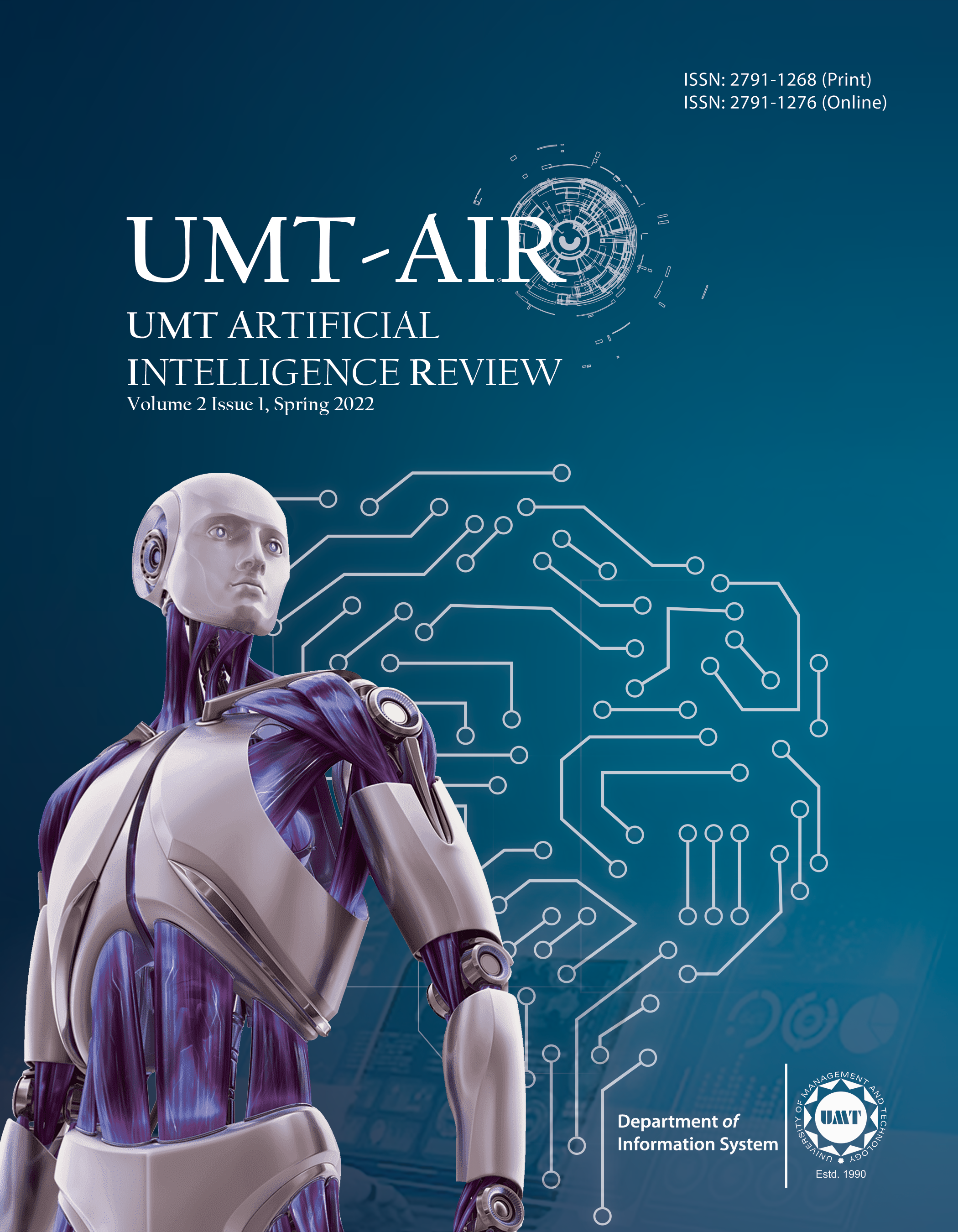Consumer attitude towards Pakistani Clothing Brands on Facebook before and during Covid-19 pandemic
Abstract
 Abstract Views: 132
Abstract Views: 132
COVID-19 has drastically affected businesses, industries, and consumers across the world. However, the rise of digital technology and advancements in e-commerce sector in the past decade has helped clothing brands to cope-up with the pandemic challenges. These developments have also shifted the perspective of founders to the new normal. This research paper provides a consumer oriented analysis of how clothing brands and consumers in Pakistan have reacted to the pandemic. Consumer reactions on these platforms are analyzed, including social media marketing and purchasing of clothes on Facebook. Specifically, it focuses on the first wave of COVID-19 as it provides core insights into business transformations from the perspectives of both business organization and consumers. Although, the situation has been appreciably restored now.
Downloads
References
B. Ali, “Impact of COVID-19 on consumer buying behavior toward online shopping in Iraq,” Econ. Stud. J., vol. 18, no. 42, pp. 267-280, Nov. 2020.
A. Bhatti, H. Akram, H. M. Basit, A. U. Khan, S. M. Raza, and M. B. Naqvi, “E-commerce trends during COVID-19 pandemic. Int. J. Future Gener. Commun. Network., vol. 13,no. 2, pp.1449-1452, 2020.
M. Shafi, J. Liu, and W. Ren, “Impact of COVID-19 pandemic on micro, small, and medium-sized enterprises operating in Pakistan,” Res. Glob., vol. 2, Art. no. 100018, Dec. 2020, doi:
https://doi.org/10.1016/j.resglo.2020.100018
A. R. Ahmad, and H. R. Murad, “The impact of social media on panic during the COVID-19 pandemic in Iraqi Kurdistan: Online questionnaire study. J. M. Inter. Res., vol. 22, no. 5, Article no. 19556, Apr. 2020. https://doi.org/10.2196/19556
D. J. Severinus, Z. B. B. Faisal, A. D. B. Rumaizi, and P. R. B. M. Yusoff, “Customer purchasing behaviour in online shopping during pandemic (COVID-19),” Nov. 2020. [Online]. Available: http://repository.psa.edu.my/bitstream/123456789/3515/1/DPI5B%20GROUP%208%20A%20STUDY%20ON%20CUSTOMER%20PURCHASING%20BEHAVIOUR%20IN%20ONLINE%20SHOPPING%20DURING%20PANDEMIC%20%28COVID-19%29.pdf
J. Koch, B. Frommeyer, and G. Schewe, “Online shopping motives during the COVID-19 Pandemic—Lessons from the crisis,” Sustainability, vol. 12, no. 24, Art. no.10247, Dec. 2020, doi: https://doi.org/10.3390/su122410247
R. Alhaimer, “Fluctuating attitudes and behaviors of customers toward online shopping in times of emergency: The case of Kuwait during the COVID-19 pandemic. J. Internet Commer., vol. 21, no. 1, pp. 1-26, 2022, doi: https://doi.org/10.1080/15332861.2021.1882758
F. Fatema and M. A. Siddiqui, “Factors affecting customers’ online shopping behavior during Covid-19 pandemic in Bangladesh,” ABC Res. Alert, vol. 9, no. 2, pp. 67-79, Aug. 2021, doi: https://doi.org/10.18034/abcra.v9i2.567
D. G. Y. Showrav, M. A. Hassan, S. Anam, and A. K. Chakrabarty, “Factors influencing the rapid growth of on in-shopping during covid-19 pandemic time in Dhaka city, Bangladesh,” Acad. Strategic Manag. J., vol. 20, no. 2, pp. 1-13, 2021.
E. Sumarliah, K. Usmanova, K. Mousa, and I. Indriya, “ E-commerce in the fashion business: the roles of the COVID-19 situational factors, hedonic and utilitarian motives on consumers’ intention to purchase online,” Int. J. Fashion Des. Technol. Edu., vol. 15, no. 2, pp. 167-177, Jul. 2021, doi: https://doi.org/10.1080/17543266.2021.1958926
B. Armstrong and C. Reynolds, “China and the USA, a higher perceived risk for UK consumers in a post COVID-19 food system: The impact of country of origin and ethical information on consumer perceptions of food,” Emerald Open Res., vol. 2, no. 35, pp. 1-10, 2020, doi: https://doi.org/10.35241/emeraldopenres.13711.1
E. Pantano, G. Pizzi, D. Scarpi, and C. Dennis, “Competing during a pandemic? Retailers’ ups and downs during the COVID-19 outbreak,” J. Bus. Res., vol. 116, pp. 209-213, Aug. 2020, doi: https://doi.org/10.1016/j.jbusres.2020.05.036
M. N. A. Khan, “Intention to reserve food during COVID-19
Pandemic among Bangladeshi internet users: Based on theory of planned behaviour,” Eur. J. Med. Edu. Technol., Vol. 13, no. 2, Art. no. em2010, 2020, doi: https://doi.org/10.30935/ejmets/8299
H. M. Wati, Online shopping at COVID-19 pandemic. Tangerang: Faculty of science and technology universitas Buddhi DHARMA, 2020.
X. Xie, L. Huang, J. Li, and H. Zhu, “Generational differences in perceptions of food health/risk and attitudes toward organic food and game meat: The case of the COVID-19 crisis in China,” Int. J. Environ. Res. Public Health, vol. 17, no. 9, Art. no. 3148, Apr. 2021, doi: https://doi.org/10.3390/ijerph17093148
Copyright (c) 2022 Ahmad Amjad, Farman Ali

This work is licensed under a Creative Commons Attribution 4.0 International License.
UMT-AIR follow an open-access publishing policy and full text of all published articles is available free, immediately upon publication of an issue. The journal’s contents are published and distributed under the terms of the Creative Commons Attribution 4.0 International (CC-BY 4.0) license. Thus, the work submitted to the journal implies that it is original, unpublished work of the authors (neither published previously nor accepted/under consideration for publication elsewhere). On acceptance of a manuscript for publication, a corresponding author on the behalf of all co-authors of the manuscript will sign and submit a completed the Copyright and Author Consent Form.







